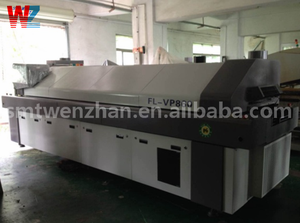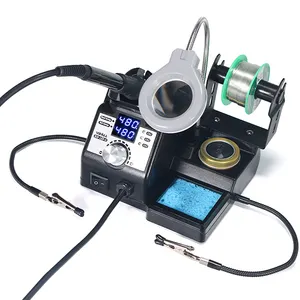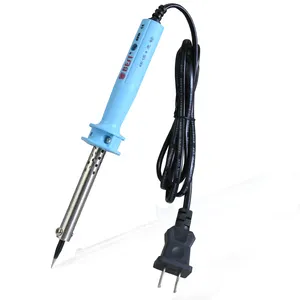
Reflow Soldering Oven Cheap Used SMT Reflow Oven 6/8/10/12 Zones SMD Reflow Soldering Machine Solder Reflow Oven


Soldering Station YIHUA 926LED-IV 60W Heater Electronic Soldering Iron Desoldering Repair Soldering Station























Soldering irons are a fundamental tool in the realm of electronic assembly and repair. They are designed for tasks that require precision and are particularly useful for small-scale electronic work. A good soldering iron is characterized by its ability to reach and maintain the necessary temperature to melt solder, thereby creating strong, conductive joints between metal components.
The market offers a variety of soldering irons to cater to different needs. Electric soldering irons are popular for their consistent heat output and ease of use. For those seeking mobility, a decent soldering iron that is cordless can provide the flexibility required for tasks without accessible power outlets. Meanwhile, a good soldering station typically includes a stand, a cleaning sponge, and temperature control features, making it a good soldering iron for electronics that require precise heat settings.
Soldering irons are not just for creating new electronic devices; they are also indispensable for repairing circuit boards and wiring. The best soldering iron options facilitate tasks ranging from intricate circuit board repairs to DIY electronic projects. Features to consider include temperature control, tip size and shape, and ergonomic design, which can significantly impact the efficiency and comfort of soldering work.
A good quality soldering iron is typically made from durable materials that can withstand high temperatures and prolonged use. The advantages of selecting a robust tool include longevity and consistent performance. For those on a budget, a budget soldering iron can still offer reliability without compromising on the essential features required for effective soldering.
When selecting a soldering iron, it is important to consider the nature of the projects you will undertake. For occasional use or simple projects, a soldering iron under 100 may be sufficient. However, for more frequent use or complex electronics work, investing in a top rated soldering station might be more appropriate, providing a comprehensive solution for various soldering needs.
In conclusion, whether you are a hobbyist or a professional, the right soldering iron is out there to suit your specific requirements. With a diverse range of options available, it is essential to assess features, materials, and types to find the tool that will serve your soldering tasks best. Remember to consider the longevity, ease of use, and precision that a quality soldering iron can bring to your workbench.